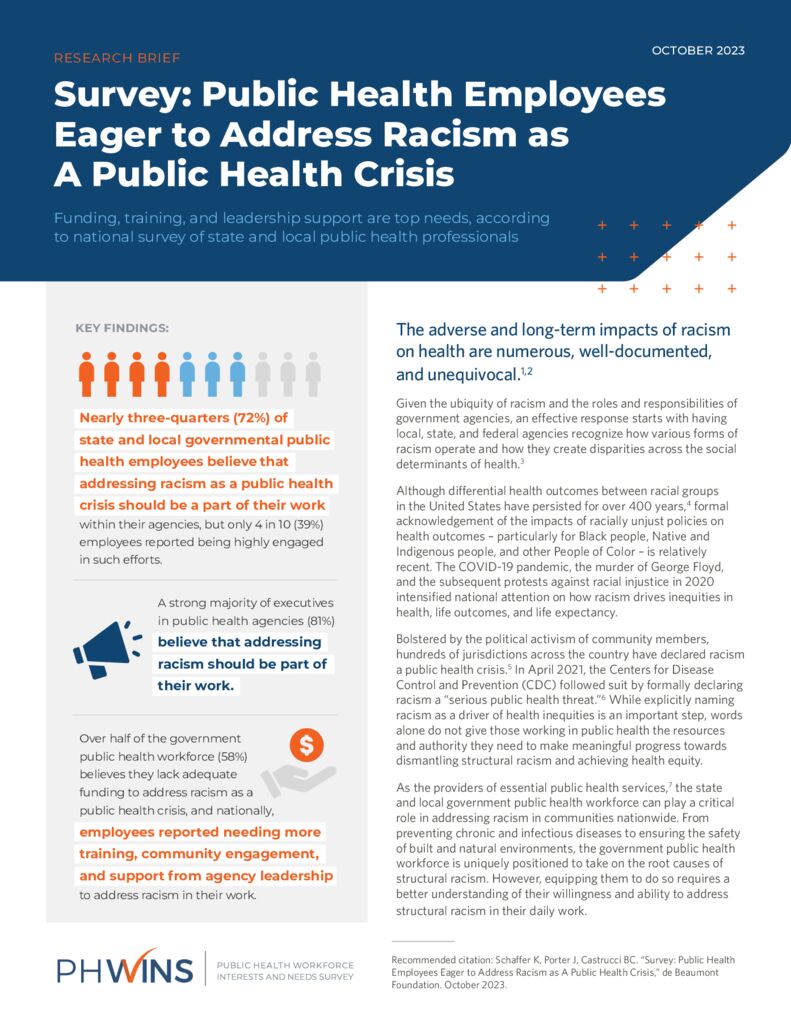
As the providers of essential public health services, the state and local government public health workforce is uniquely positioned to take on the root causes of structural racism in communities nationwide. A new Research Brief analyzing data from the 2021 Public Health Workforce Interests and Needs Survey (PH WINS) provides the first exploration of government public health employees’ views on addressing racism as a public health crisis, how much they have been involved in such efforts, and the resources and supports they believe they need to take on racial justice work within public health agency contexts.
Key findings:
- Nearly three-quarters (72%) of state and local government public health employees believe that addressing racism as a public health crisis should be part of their work within their agencies. However, only about 4 in 10 (39%) employees reported being highly engaged in such efforts.
- A strong majority of public health agency executives (81%) believe that addressing racism should be part of their work.
- Over half of the government public health workforce (58%) believes they lack adequate funding to address racism as a public health crisis. Nationally, employees reported needing more training, community engagement, and support from agency leadership to address racism in their work.
With equity at the center of the 10 Essential Public Health Services, the government public health workforce cannot genuinely promote and protect the health of all people unless it is working to eradicate the structural oppression that perpetuates health inequities. To continue this work, public health agencies at the federal, state, and local level should:
- Remove Barriers: Understand the internal barriers that prevent employees from addressing racism as a public health crisis in their work and take steps to remove them.
- Improve Training: Facilitate continuing education and on-the-job training to ensure that employees understand that structural racism is ubiquitous and has genuine effects on community health.
- Build Partnerships: Prioritize creating and strengthening partnerships across sectors and organizations to build political will and bolster employees’ ability to undertake anti-racist work.
- Identify Funding Sources: Secure sustained funding to address the many ways in which racism creates health inequities.
For more information on the public health workforce’s involvement in addressing structural racism and other key health equity issues, explore the PH WINS health equity dashboard.




